Recipe for a Harris Win: More Obama, Less Cheney
Embracing right-wing Republicans won’t excite undecided voters. Associating with a popular Democrat who understands battleground states like Wisconsin will.
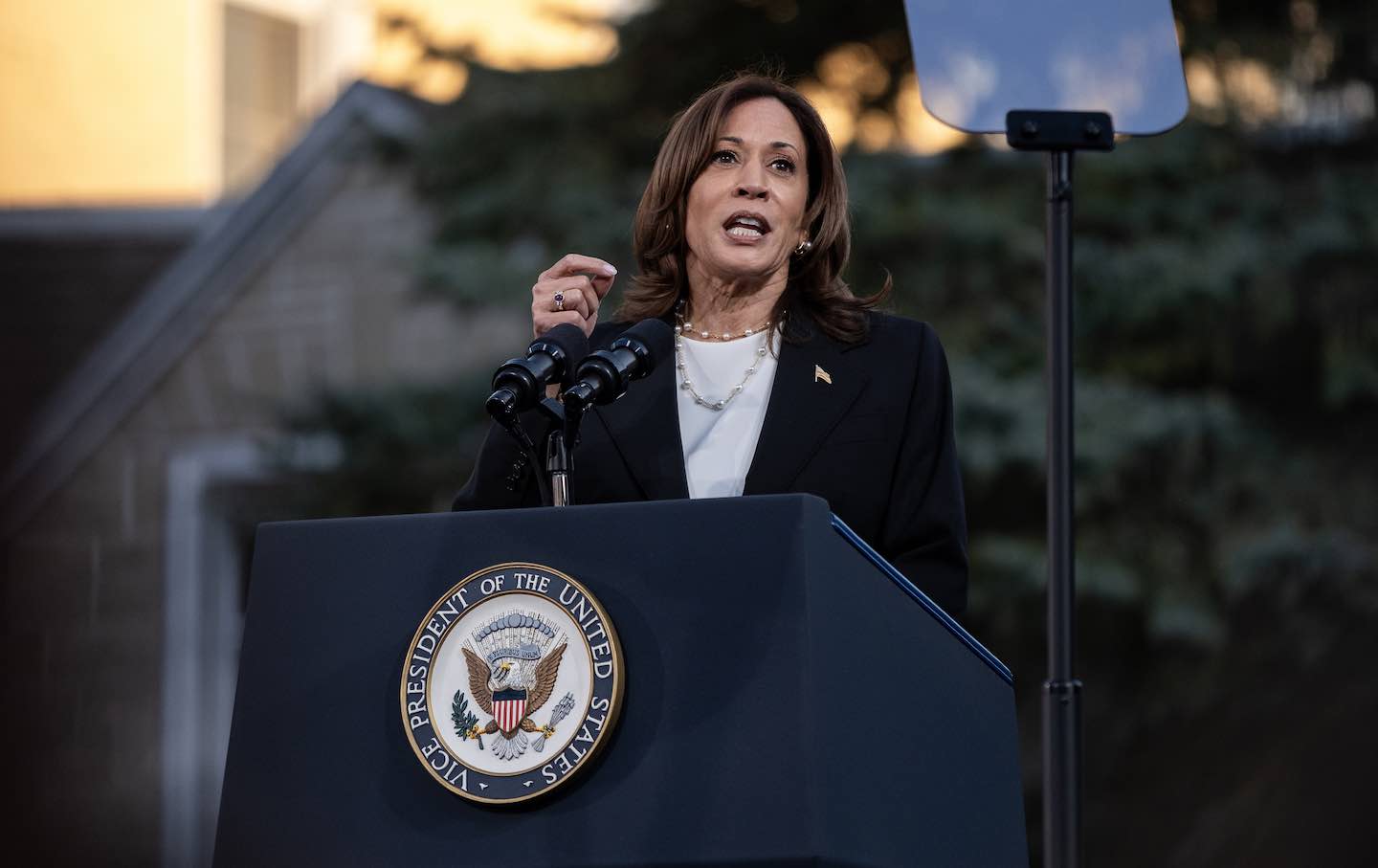
Democratic presidential nominee Kamala Harris speaks during a rally at Ripon College on October 3, 2024, in Ripon, Wisconsin.
(Jim Veruluska / Getty Images)
So many strategists, pundits, and honest observers of the 2024 presidential campaign are marveling at the fact that Kamala Harris has not opened a commanding lead with the approach of Election Day. The Democratic nominee crushed Donald Trump in their one debate, and she has run an energetic, often inspiring campaign in the face of her rival’s madness and anti-immigrant ranting. Still, Harris is, at best, maintaining only a narrow lead over the Republican and, at worst, struggling to keep ahead of him in several of the battleground states that will decide the winner of the Electoral College.
There are plenty of reasons why, but one of the best explanations is this: Harris has been hanging out with the wrong crowd.
Take the case of Wisconsin, a swing state that Harris absolutely must win. She’s been working hard to do just that. But her last big appearance—a visit to Ripon, the birthplace of the GOP—was with Liz Cheney. The former House member is a notoriously extreme right-wing Republican, who did much to lay the groundwork for Trump and Trumpism. Chastened by the former president’s embrace of violent authoritarianism, Cheney is backing Harris this year, as is her father, Dick. But the Cheneys are still the Cheneys.
Liz Cheney has for decades been an advocate for right-wing politics; a Republican zealot who, in addition to campaigning for Trump in 2016 and 2020, supported even more extreme members of the party caucus as it peddled vile anti-immigrant, anti-labor, and anti–voting rights rhetoric. As a leader of the House Republican Caucus during Trump’s term as president, she made her party crueler, more extreme, and more threatening. Now, the threats have begun to frighten even her; but that does not change the fact that she helped set the GOP on its current trajectory.
So did Dick Cheney, who was never even popular in Wisconsin. The former vice president, it should always be remembered, was on the Republican tickets that lost Wisconsin in 2000 and 2004.
Hoping that an association with the Cheneys is going to move votes in Wisconsin in 2024 is silly. Yes, there will be Republicans who will cross over and vote for the Democratic ticket this year, but most of them decided to do so months ago. It is hard to imagine that there is anyone who is going to say, “I was all for Trump until I heard Dick Cheney was backing Harris.”
If Harris wants to win Wisconsin, she should stop talking about, and appearing with, the Cheneys, and start talking up the support she has received from Barack Obama, who is currently on the campaign trail as the Democratic presidential nominee’s top surrogate.
The Obama connection has real resonance for Wisconsin. It’s a state that embraced the former senator from Illinois with an enthusiasm that nary a Democratic nominee that followed him has mustered.
Obama is the last Democrat who won Wisconsin with more than 50 percent of the vote. Hillary Clinton lost Wisconsin by 22,748 votes in 2016, and Joe Biden won by 20,862 in 2020. No candidate of either party secured a majority in either of those Wisconsin elections. Contrast that with Obama, who in 2008 won 56 percent of the vote in Wisconsin, far above the 53 percent he won nationally. In 2012, a tougher year for Democrats, Obama won 53 percent of the Wisconsin vote, way more than the 51 percent he won nationally.
Obama’s Wisconsin wins were the biggest for Democrats in the state since Lyndon Johnson’s in 1964 and Franklin Roosevelt’s in 1936. And the Obama victories were truly statewide in character: He won dozens of rural counties, along with the urban centers where Democrats have traditionally been strong. In 2008, he carried seven of the state’s eight congressional districts—including several that FDR lost in his later bids. In 2012, Obama carried fewer congressional districts, but still won vast stretches of the state, including every county in southwest Wisconsin and much of the northwest.
It is unlikely that any Democrat could run as well in Wisconsin as Obama did in 2008. But Harris can, and should, aspire to win as much of the Wisconsin vote as Obama got in 2012—when the party also won US Senate races and carried a solid majority of the vote statewide for congressional and legislative seats. Gerrymandering prevented the Democrats from getting their fair share of seats that year. But newly drawn, fair maps could give the party much more traction this year.
With the right campaign, Harris, who is narrowly ahead in recent polls of Wisconsinites, could lead the Democrats to a similarly significant victory.
But she won’t do so by going on and on about Dick and Liz Cheney.
It’s Obama who has the potential to persuade Wisconsin voters, via targeted media ads and, ideally, a high-profile appearance in the state with this year’s nominee.
Obama gets Wisconsin. He has always maintained a strategic sense about how to campaign in the state, where he won the 2008 Democratic presidential primary over Hillary Clinton by a commanding 58 to 40 margin.
Obama, who as a young man worked with a Chicago-based law firm that maintained an office in Madison, knows where to campaign in the Badger state. In 2008 and 2012, he did the usual outreach to urban voters in Milwaukee and Madison. But he also paid attention to smaller cities, such as Green Bay, Racine, Kenosha, Janesville, Wausau, La Crosse, and Eau Claire, where he showed up and spoke, a lot, about renewing manufacturing and increasing support for rural regions of the state. He also talked about the cost of bloated military budgets and unnecessary wars. In 2008, Obama positioned himself to the left of Clinton in the primary race—emphasizing the fact that he had opposed the rush to war in Iraq.
That position appealed to voters in Wisconsin, which was a historic center of opposition not just to the Vietnam War in the 1960s and ’70s but also to World War I. It was Wisconsin Senator Robert M. La Follette who counseled voters, “Stand firm against the war and the future will honor you. Collective homicide cannot establish human rights.” The pundits said those sentiments would ruin La Follette politically. Instead, he was reelected by the largest landslide in the history of Wisconsin Senate contests. It was similar for Senator Gaylord Nelson, who bucked a Republican tide to secure reelection in 1968 as an ardent foe of the Vietnam War. And for Senator Russ Feingold, who voted against the war in Iraq in 2002—as he had opposed the Patriot Act in 2001—and then won his biggest victory ever in 2004.
Popular
“swipe left below to view more authors”Swipe →Obama recognized that tradition and embraced it in 2008, making a break with leaders of both parties to decry “a Washington where politicians like John McCain and Hillary Clinton voted for a war in Iraq that should’ve never been authorized and never been waged—a war that is costing us thousands of precious lives and billions of dollars a week that could’ve been used to rebuild crumbling schools and bridges; roads and buildings; that could’ve been invested in job training and child care; in making health care affordable or putting college within reach.”
It may be harder for Harris to break with an administration in which she serves. But it would be wise for her to recognize that a stronger stance in favor of a ceasefire in Gaza—and for restrictions on US military aid to Israel—would attract far more support in Wisconsin than an appearance with a neoconservative militarist like Liz Cheney.
Indeed, if Harris appears with anyone in Wisconsin, it should be Obama. He knows how to speak to the sentiments of the state, how to campaign effectively in its communities, and how to win it big on Election Day.
Support independent journalism that exposes oligarchs and profiteers
Donald Trump’s cruel and chaotic second term is just getting started. In his first month back in office, Trump and his lackey Elon Musk (or is it the other way around?) have proven that nothing is safe from sacrifice at the altar of unchecked power and riches.
Only robust independent journalism can cut through the noise and offer clear-eyed reporting and analysis based on principle and conscience. That’s what The Nation has done for 160 years and that’s what we’re doing now.
Our independent journalism doesn’t allow injustice to go unnoticed or unchallenged—nor will we abandon hope for a better world. Our writers, editors, and fact-checkers are working relentlessly to keep you informed and empowered when so much of the media fails to do so out of credulity, fear, or fealty.
The Nation has seen unprecedented times before. We draw strength and guidance from our history of principled progressive journalism in times of crisis, and we are committed to continuing this legacy today.
We’re aiming to raise $25,000 during our Spring Fundraising Campaign to ensure that we have the resources to expose the oligarchs and profiteers attempting to loot our republic. Stand for bold independent journalism and donate to support The Nation today.
Onward,
Katrina vanden Heuvel
Editorial Director and Publisher, The Nation
More from The Nation
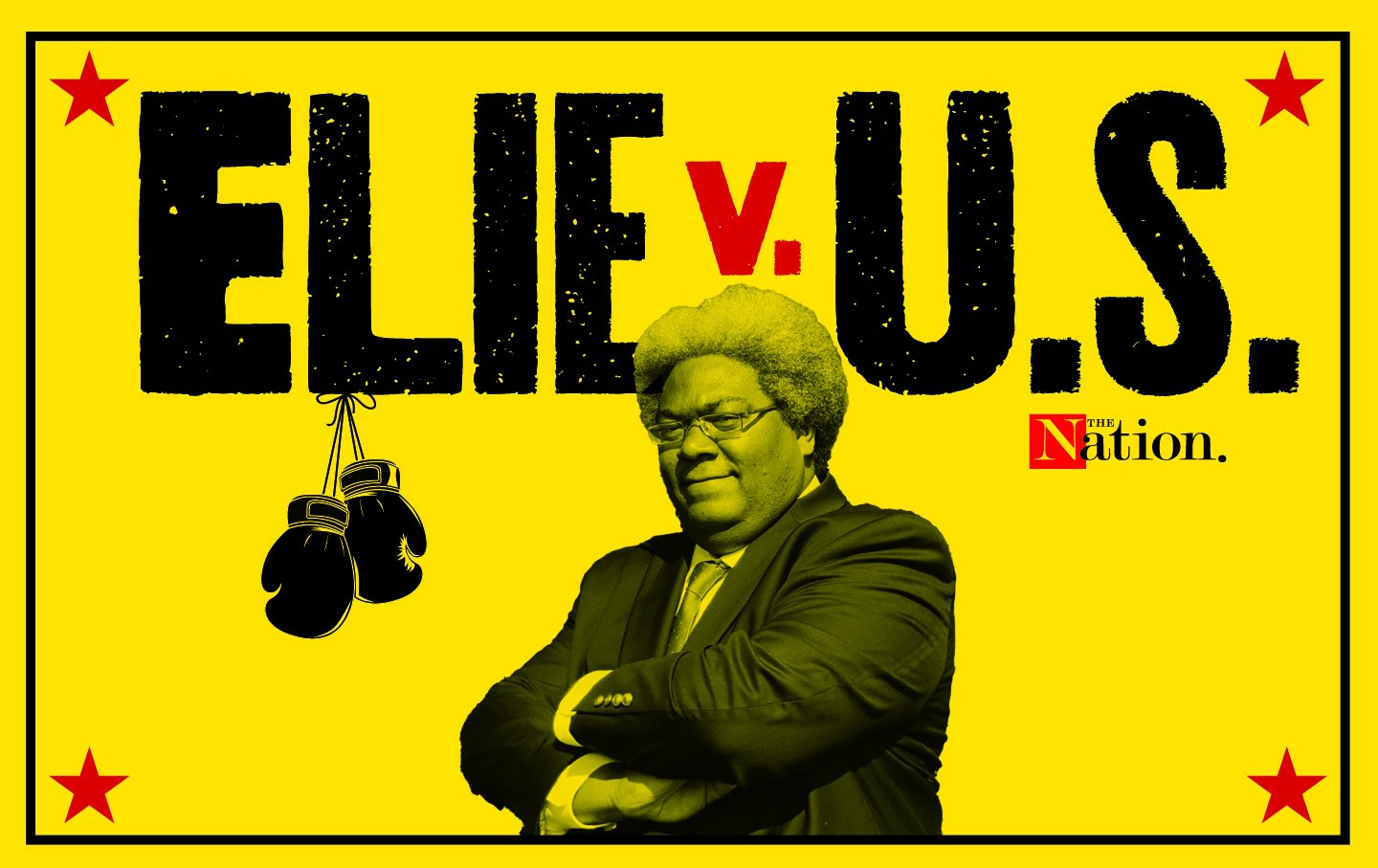
Introducing “Elie v. U.S.” Introducing “Elie v. U.S.”
A preview of Elie Mystal’s new weekly newsletter.

Don’t Listen to Greasy Gavin Newsom. Listen to Trans Athletes. Don’t Listen to Greasy Gavin Newsom. Listen to Trans Athletes.
In a podcast with Charlie Kirk, the California governor put his electoral ambition ahead of trans people. But what do trans athletes themselves have to say?

How to Save the Democratic Party From Itself How to Save the Democratic Party From Itself
The flailing and unpopular party elite needs to be replaced with fighting economic populists.
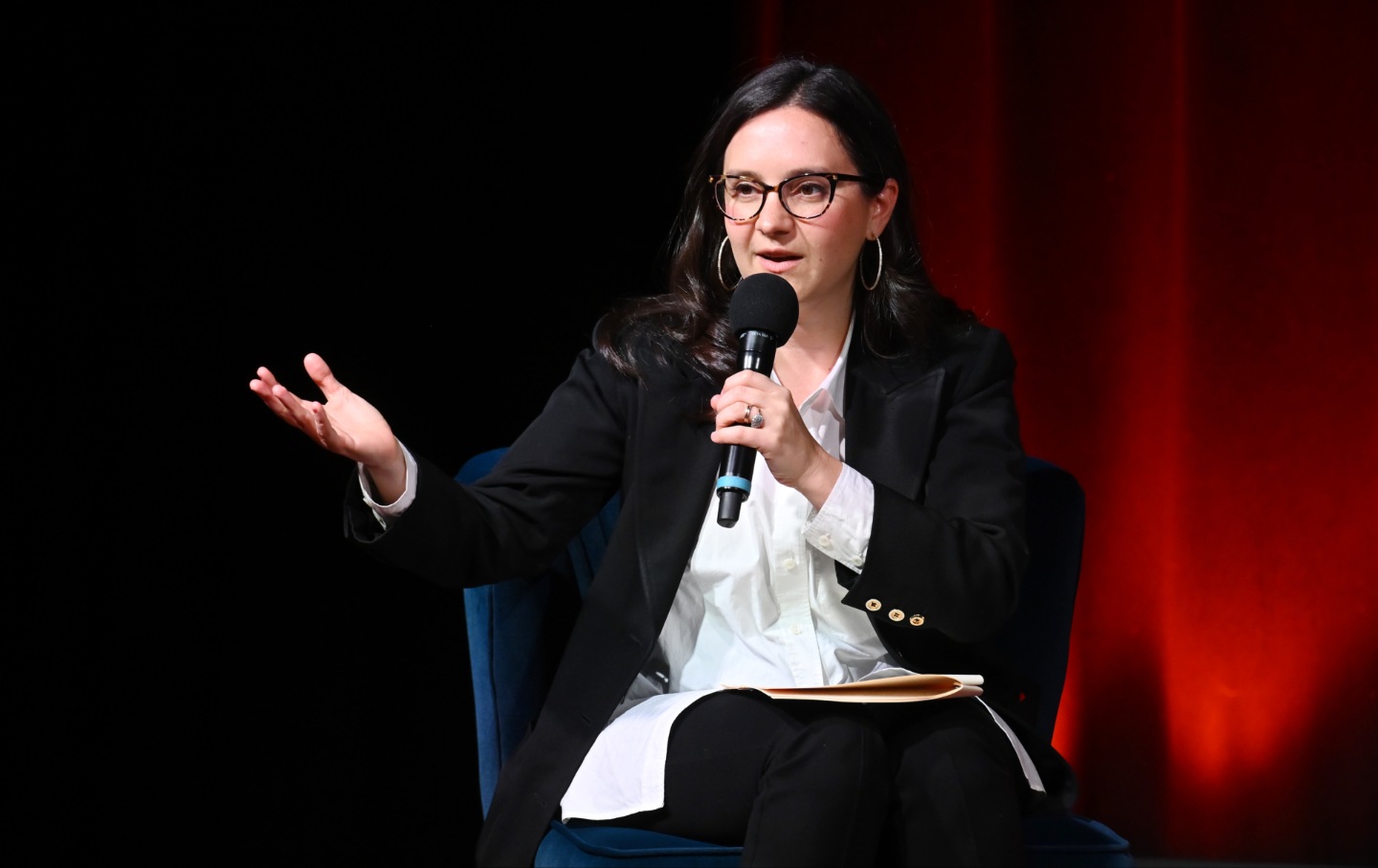
What’s a Rebel Pundit to Do in the Age of Trump? What’s a Rebel Pundit to Do in the Age of Trump?
Supposedly contrarian journalists like Bari Weiss, Matt Taibbi, and Glenn Greenwald have a problem: The current establishment loves them.
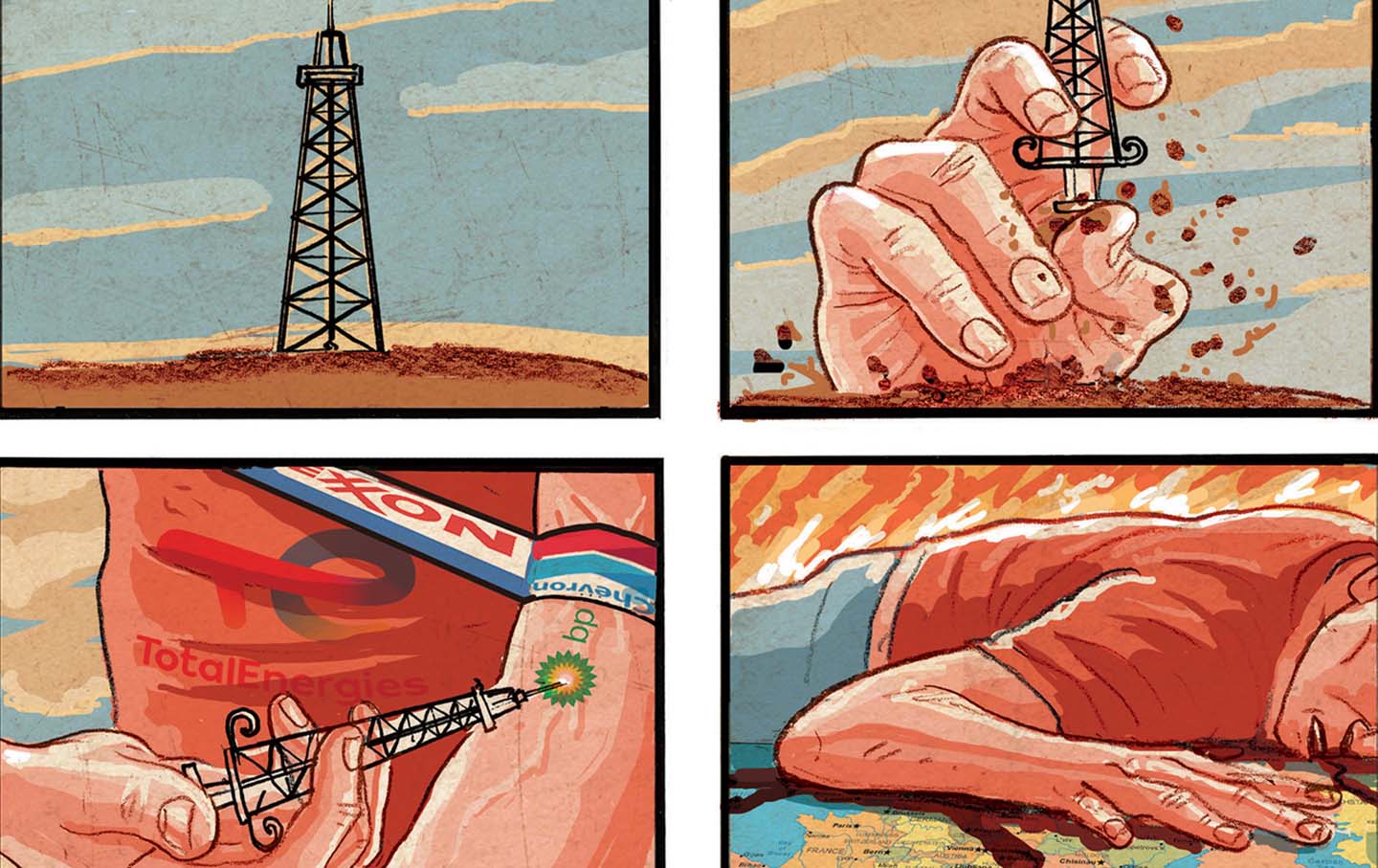
Our Addiction to Fossil Fuels… Our Addiction to Fossil Fuels…
…and the oil companies are drug dealers.
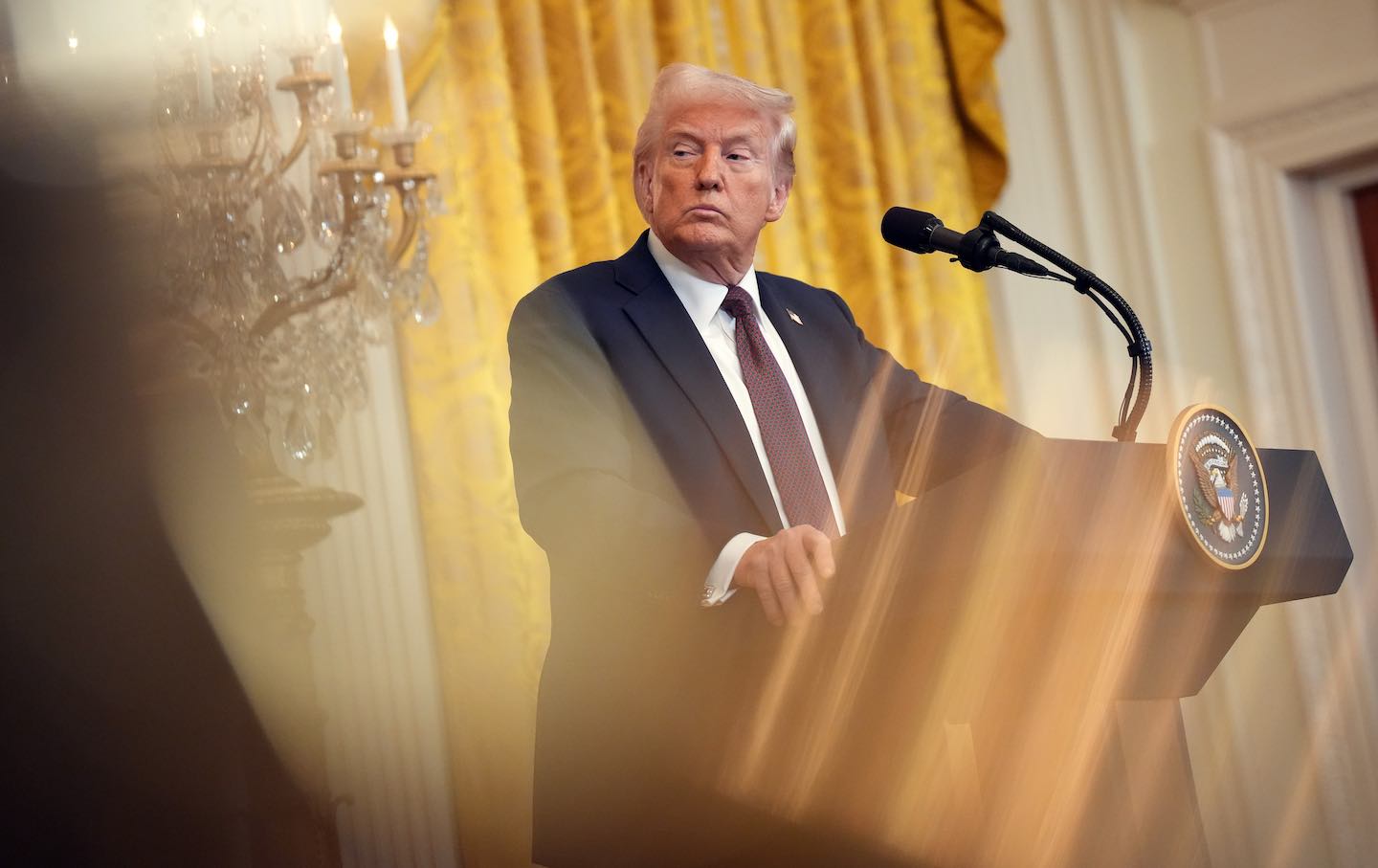
Trump Abandons Ukraine, and Wages a War Against the Free Press Trump Abandons Ukraine, and Wages a War Against the Free Press
The White House's attacks on the media are starting to look remarkably similar to those waged in other countries that have embraced autocratic leaders in recent years.


